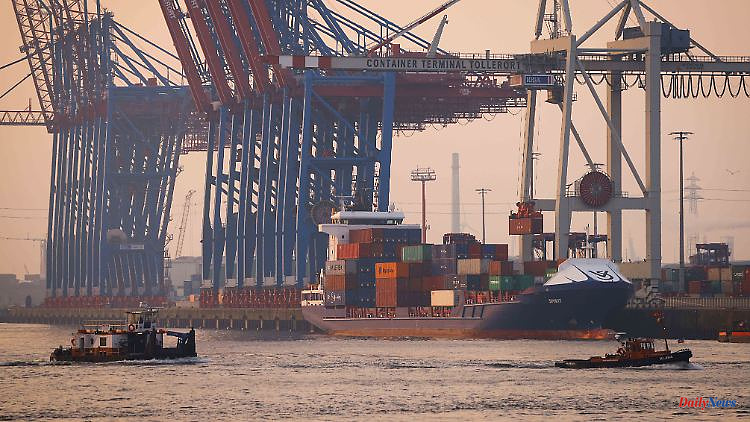The economists had actually expected a decline. But the Federal Statistical Office teaches them better: last month the industry surprised with an increase in orders. Despite increasing orders, it is still too early to give the all-clear.
Thanks to the export business, German industry has surprisingly started the new year with an increase in orders. Orders climbed in January by 1.0 percent compared to the previous month, as reported by the Federal Statistical Office. Economists, on the other hand, had expected a decline of 0.9 percent, after a plus of 3.4 percent in December. "All in all, the signs of stabilization in the order situation in the manufacturing sector suggest that the current economic downturn will be mild," said the Federal Ministry of Economics.
The German Chamber of Industry and Commerce (DIHK) warned that the downward trend in orders had initially stopped. "But it's too early to give the all-clear." Foreign orders climbed 5.5 percent and orders from outside the euro zone rose by over 11 percent. Domestic business, on the other hand, fell by 5.3 percent after an increase of the same amount in the previous month. "The high growth from abroad is likely to have something to do with the China reopening after the end of the zero Covid policy in China," said LBBW economist Jens-Oliver Niklasch. However, the weak domestic data showed that the economic weakness in Germany was continuing. "It will probably once again come down to the fact that the export economy will make the start in the upswing."
DIHK expert Jupp Zenzen explained: "Due to the weak economic prospects in this country, rising interest rates and the persistently high energy prices, domestic demand overall continues to be slowed down." Chief economist Alexander Krüger from the Hauck Aufhäuser Lampe private bank spoke of a continuing lethargy in the awarding of contracts. The year-on-year comparison of around minus eleven percent is thought-provoking. "In January there was a lack of major orders." Because without taking these orders into account, there was even 2.9 percent growth. "In view of the increasing structural weaknesses, it is too easy to blame the misery solely on material shortages," said Krüger.
"Incoming orders still have a certain downward trend," emphasized Commerzbank chief economist Jörg Krämer. This is likely to dampen industrial production in the coming months. "For the gross domestic product I expect a further minus of 0.5 percent for this year."
The German economy had shrunk by 0.4 percent at the end of 2022 and has one foot in the recession. If the gross domestic product also shrinks in the current quarter - and thus two quarters in a row - Germany would be in a technical recession according to a rule of thumb. Real sales in industry rose by 0.2 percent from December to January. Compared to the previous year, January sales were 0.4 percent lower after calendar adjustments. Inflation and high energy prices are a burden on companies.
According to the IFO Institute, some companies also increased their prices at the end of 2022 more than would have been necessary due to the development of inflation and their costs. "These companies have used the situation to increase their profits significantly," explained Joachim Ragnitz, deputy head of the IFO branch in Dresden. "This applies above all to companies in retail, hospitality and transport as well as in the construction industry." IFO President Clemens Fuest said at the International Tourism Fair ITB that annual inflation will not fall so sharply for the time being. "We will live in a time of higher inflation."












